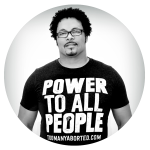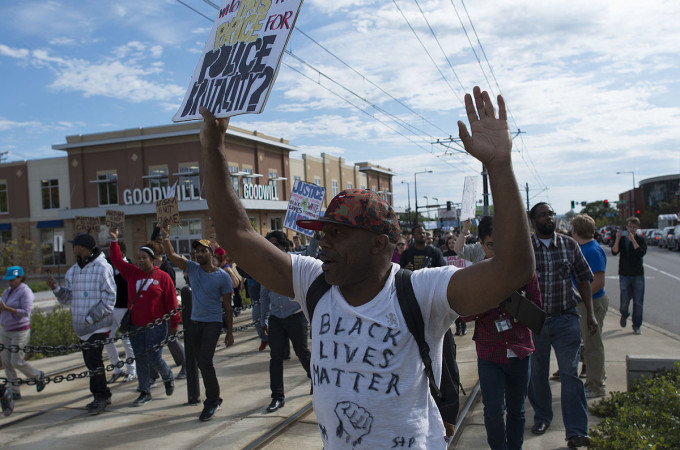By Fibonacci Blue from Minnesota, USA
Answer: Black Lives Matter.
Question: What popular ethnic slogan would have struck most ears as redundant until a few months ago?
As a PR strategy, the phrase “Black Lives Matter” has been wildly successful. Coined in 2013 after the Treyvon Martin shooting, it has since become a household term. The slogan has been employed everywhere, from the 2016 presidential race to the largest missionary conference in North America.
 The last day of February—Black History month in the USA—seems an appropriate time to invoke Black Lives Matter in this space, although from a different-than-usual angle. We want to note Black History month by pointing to a helpful blog post written by Ryan Scott Bomberger at Radiance.
The last day of February—Black History month in the USA—seems an appropriate time to invoke Black Lives Matter in this space, although from a different-than-usual angle. We want to note Black History month by pointing to a helpful blog post written by Ryan Scott Bomberger at Radiance.
Mr. Bomberger writes about a prominent African-American woman of another generation whose life and achievements give new meaning to the expression Black Lives Matter, a woman whose powerful legacy has demonstrated the value of black lives, and in particular, of unborn black children.
Fannie Lou Hamer was a pro-life black woman who, among other things, challenged Planned Parenthood for targeting black babies for abortion. Here is a summary of her remarkable story.
~
Black History Month should be a time of celebration of achievement and honest reflection on the impediments to freedom for all. Civil rights leader Fannie Lou Hamer is one of many who broke through the generational shackles of poverty to live a life devoted to helping free others from the same bondage.
Hamer was born into poverty in 1917 (the youngest of 20 children), which according to Planned Parenthood’s philosophy, was a circumstance worthy of eliminating her. Since the age of 6, she worked in the cotton fields with her sharecropping family and was forced to leave school at the age of 12.
But Fannie Lou Hamer, like many other remarkable figures in American history, defied the disproven narrative that poverty cannot birth greatness. She and her husband, Perry “Pap” Hamer, tirelessly toiled on a Mississippi plantation. He worked in the fields (basically as a slave, just in a different legal form) while she, armed with the ability to read and write, worked in the big House. In 1962, her life took an even more drastic turn.
She was diagnosed with a small uterine tumor, but instead of simply removing it, the doctor performed a hysterectomy without her consent. Pro-abortion activists often refer to Hamer’s ordeal as “Mississippi Appendectomies”, a term which Hamer coined. These unjust acts were done to thousands of women across the country, like North Carolinian Elaine Riddick. Abortion activists won’t mention those sterilizations were heavily promoted by Planned Parenthood or that Fannie Lou Hamer was, actually, passionately pro-life. This traumatic experience was the catalyst for her social activism, to fight the incredible injustice that black Americans faced, daily, in America.
She fought for the right of black Americans to vote, risking her very life as she survived violent attacks for her public crusade for rights guaranteed by the Constitution. She never gave up. Hamer wanted to provide a better world for black children who were constantly the target of racist efforts that forced birth control and other eugenic social policies masquerading as anti-poverty measures. In fact, Hamer was quoted as saying, during a White House Conference on Hunger (renamed the Conference on Food, Nutrition, and Health): “I didn’t come to talk about birth control. I came here to get some food to feed poor, hungry people. Why are they carrying on that kind of talk?”
Go here to read Mr. Bomberger ’s post in full.
- Gary Brumbelow






